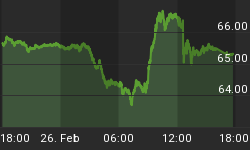The current weakness in domestic markets has recently been magnified overseas as panic spread to foreign investors with exposure to U.S. asset backed debt. Some commentators point to this reaction in an attempt to disprove the belief that foreign assets offer protection from falling U.S. stocks. I believe such conclusions are premature. Global stock markets will soon decouple from ours, and strong returns overseas will occur even as U.S. stocks slump.
I believe that the recent sell off in global stocks is liquidity-driven and will likely be short-lived. Many of our foreign creditors, particularly those using leverage, were forced to meet margin calls by selling assets to raise cash. Since the assets causing the problems had little, if any, value, they were forced to sell other assets instead, causing prices to fall sharply. In addition, the increased risk aversion that followed led to de-leveraging of other speculative positions; particular yen carry trades, putting additional downward pressure on many of the foreign assets that had been purchased with borrowed yen.
In contrast to the recent declines in U.S. stocks, which are driven by deteriorating fundamentals and a poor outlook for corporate earnings and the U.S. economy, the steep drops in many foreign stocks do not stem from financial distress in the companies themselves, but simply from the short-term distress of their highly leveraged shareholders. Remember, the root of the problem lies in the inability of American borrowers to repay their debts. While foreign lenders may be getting stung a bit, they will take their losses and move on. On the other hand, American borrowers will face much bleaker futures.
In a mortgage crisis, such as the one we are currently experiencing, lenders typically get hit first. As it so happens at present, America's lenders usually carry foreign passports. Although foreign creditors may be the first to take it on the chin, American borrowers will ultimately be knocked out by the combination punch of much higher interest rates and vanishing home equity.
Foreigners are suffering now because they loaned money to Americans who could not repay. However, as we are the ones who are broke, we are the ones who are in real trouble. Furnished with a greater appreciation of the risks, foreigners will now buy fewer dollar-denominated bonds collateralized by U.S. real estate, automobiles, receivables, credit card debt, etc. Without a ready secondary market for asset-backed debt, Americans will find it increasingly difficult to buy consumer goods or real estate on credit. As discretionary consumer spending grinds to a halt, real estate prices plunge and our economy falls into a protracted recession, the developing bear market in U.S. stocks will continue. However, as foreign consumers and businesses enjoy the benefits of additional goods and credit previously provided to Americans, overseas economies will grow faster, extending the lives of what are very powerful bull markets.
On a similar note, the recent global rout in stocks produced similar declines in both gold and gold stocks. Here again I feel that we are witnessing liquidity events that will likely reverse as the true nature of our problems become apparent. As Fed officials continue to talk tough on inflation and deny the obvious threats to our economy from the growing credit crunch and collapsing real estate market, gold is being sold in favor of treasuries. Soon however, the markets will see through this charade and gold will shine more brightly than it did in 1980. The key for those of us holding the yellow metal or other non-dollar assets in anticipation of a major economic crisis in the U.S. is not to panic out of our positions. I am confident that we are holding the winning hand; all we need do is not throw it away.
For a more in depth analysis of the tenuous position of the Americana economy and U.S. dollar denominated investments, read my new book "Crash Proof: How to Profit from the Coming Economic Collapse." Click here to order a copy today.
More importantly take action to protect your wealth and preserve your purchasing power before it's too late. Discover the best way to buy gold at www.goldyoucanfold.com, download my free research report on the powerful case for investing in foreign equities available at www.researchreportone.com, and subscribe to my free, on-line investment newsletter at http://www.europac.net/newsletter/newsletter.asp.
















